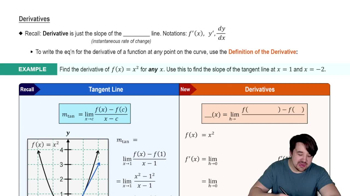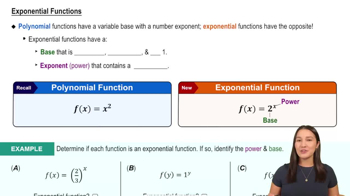Let f(x) = 4√x - x.
Find all points on the graph of f at which the tangent line has slope -1/2.
 Verified step by step guidance
Verified step by step guidance Verified video answer for a similar problem:
Verified video answer for a similar problem:



 3:59m
3:59mMaster Derivatives of Linear Functions with a bite sized video explanation from Patrick
Start learning